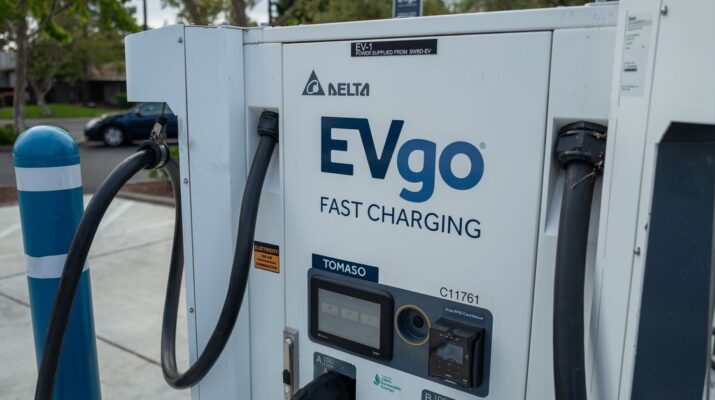In a move aimed at accelerating the adoption of electric vehicles (EVs), the US Department of Energy (DOE) has announced a $1.25 billion loan to EVgo, a leading provider of EV charging infrastructure. This significant investment is part of the Biden administration’s efforts to promote the growth of the EV market and reduce reliance on fossil fuels.
Biden Administration Rushes to Finalize Spending on EVs
With just over a month left in office, President Joe Biden’s administration is racing against time to finalize its spending on EV-related projects. The announcement of the $1.25 billion loan to EVgo comes as part of this effort. It has been reported that Donald Trump, who is set to assume office, plans to reverse or cancel much of the spending by Biden on EVs.
A Focus on Fast-Charging Infrastructure
The funds provided to EVgo will be used to install approximately 7,500 chargers at roughly 1,100 charging stations across the US over the next five years. A particular focus will be placed on installing fast-charging stalls that can charge two vehicles simultaneously, with a capacity of up to 350kW.
Job Creation and Economic Benefits
The loan is not only expected to drive growth in the EV market but also create jobs and stimulate local economies. According to EVgo, its expansion project will support the creation of 180 external construction jobs and over 550 maintenance and support jobs.
Collaboration with General Motors
EVgo has been working closely with General Motors on the installation of thousands of EV chargers across the country. The companies recently celebrated the activation of their 2,000th charging stall, demonstrating the progress being made in building a comprehensive EV charging infrastructure.
Addressing the Fragmented Nature of Current Charging Landscape
The current EV charging landscape has been widely criticized for its fragmentation and unreliability. Owners frequently complain about broken equipment or unreliable charging, which is one of the most significant barriers to EV adoption. The investment in EVgo’s expansion project aims to address these issues by providing reliable and efficient charging solutions.
Progress Made on Biden’s Charging Infrastructure Goals
In a recent update, the DOE announced that there are currently more than 204,000 publicly available charging ports across the US. This represents a significant increase from the outset of 2021 when President Biden first took office, with nearly 38,000 new public chargers already having been added this year.
Private Investment and Federal Funding
The growth in EV charging infrastructure is not limited to federal funding alone. A combination of direct federal funding, federal tax incentives, state and local funding, and private investment has contributed to the rapid expansion of public charging ports.
Recent Developments in EV-Related Loans
In addition to the $1.25 billion loan to EVgo, other notable developments include:
- Stellantis and Samsung: Received preliminary approval for $7.54 billion for a battery factory in Indiana.
- Rivian: Will receive $6.6 billion for an EV plant in Georgia.
Impact of Trump’s Plans on EV Spending
The announcement by the Biden administration comes as President-elect Donald Trump prepares to assume office. Trump has promised to reverse or cancel much of the spending by Biden on EVs, including the $7,500 tax credit for new EV purchases and the rest of the spending from the Inflation Reduction Act (IRA) on EV charging infrastructure.
Conclusion
The $1.25 billion loan to EVgo is a significant step forward in promoting the growth of the EV market and reducing reliance on fossil fuels. While the Biden administration’s efforts are focused on driving change before leaving office, it remains to be seen how Trump’s plans will impact the future of EV spending.
Recommendations
- Invest in EV Charging Infrastructure: Governments and private investors should continue to prioritize the development of EV charging infrastructure.
- Encourage Private Investment: Federal funding and tax incentives can help attract private investment, driving growth in the EV market.
- Promote Job Creation: The expansion project by EVgo is expected to create jobs and stimulate local economies.
Sources
- US Department of Energy
- White House Press Briefings




